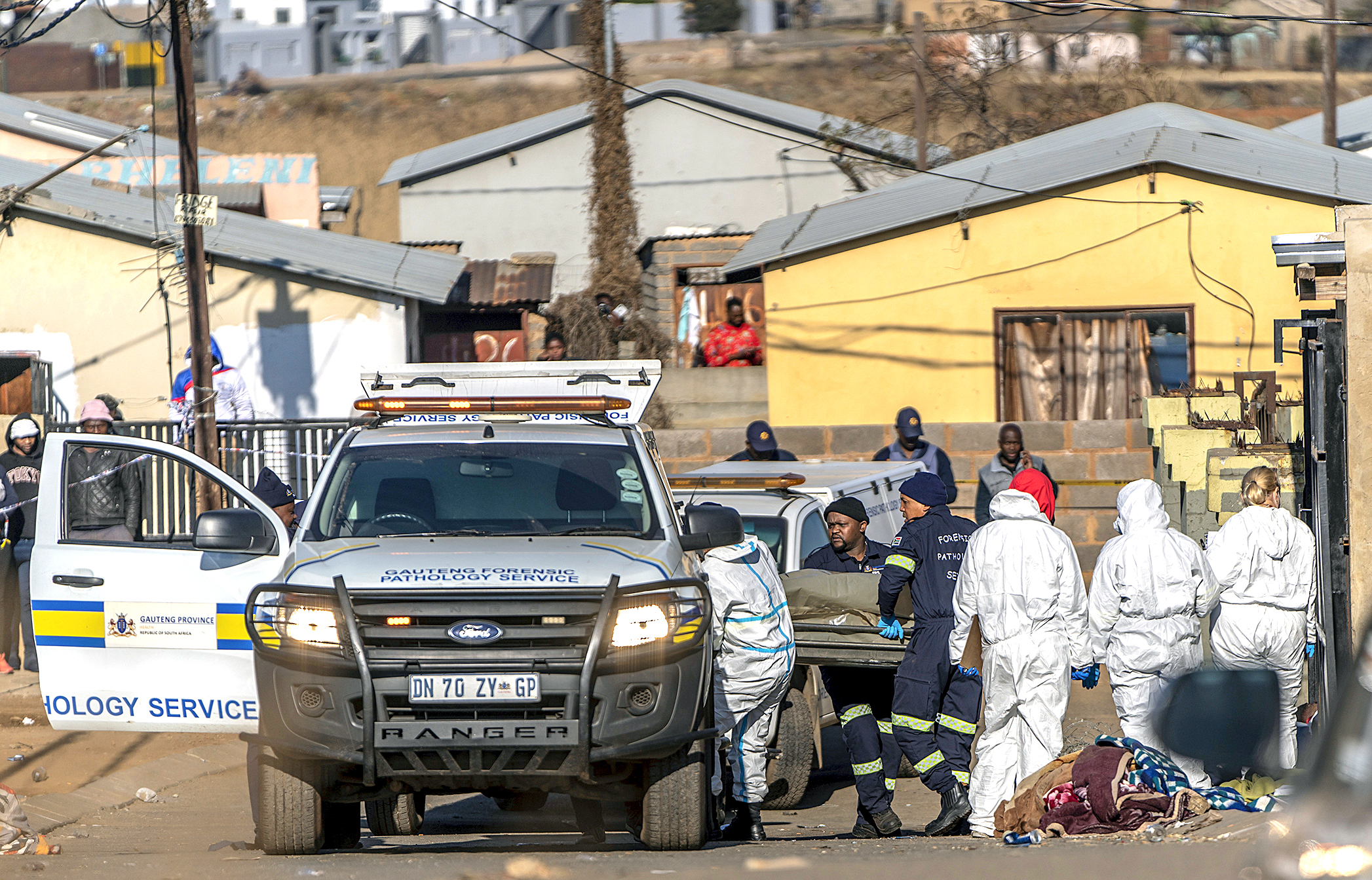It is just after midnight in Slovo Park informal settlement, south of Johannesburg. The air is cold, and the settlement is still. The only exception to this calm is the slow trickle of water dripping from a low-pressure tap connected to a nearby shack.
A woman, wrapped in a blanket, carries a bucket in one hand and a torch in the other. She’s not fetching water in the middle of the night because she wants to, she’s doing it because she has to. This is the only time the water pressure is strong enough to make collecting it viable.
But as she bends to fill her bucket, a sudden gunshot goes off, only a few metres from her. She freezes. This is the everyday fear women in informal settlements live with, where accessing basic services can become a dangerous act of survival.
Slovo Park is one of hundreds of informal settlements across South Africa that have been earmarked for formal housing upgrading. Slovo Park was established in 1991.
For more than two decades, residents have lived without basic services such as proper sanitation, adequate water supply, electricity and refuse removal. The state has been promising to upgrade the settlement to address longstanding neglect, fulfil legal and policy obligations and improve the living conditions of its residents.
/file/dailymaverick/wp-content/uploads/OPed-ebrahim-slovopark.jpeg)
While most residents have been supplied with formal electricity since July 2018 and have access to water through communal taps and self-connections, in-situ upgrading has been slow. Despite a 2016 court order requiring the state to apply for funding and commence upgrading, the settlement still lacks adequate infrastructure, and residents live in challenging conditions.
The water they risk their lives for
The delays in upgrading have created a crisis — one that hits women the hardest. The absence of safe water and sanitation continues to expose women to illness and violence.
In Slovo Park, water doesn’t flow from a tap inside a house. Community members have established self-connection taps outside, within the yard. But this doesn’t make water collection any easier for women. A woman resident relayed the fact that when people are shooting outside at night, women sometimes end up getting caught in the crossfire as they are collecting water.
The water pressure is low during the day and higher during the night due to overburdened connections. When taps run dry during the day, women, who bear the responsibility of household chores, are forced to go out at night — into the dark, into the danger.
This fear is grounded in real and recent examples of deadly gun violence in informal settlements. In July 2022, a mass shooting at a tavern in the Nomzamo informal settlement in Soweto left 15 people dead and several injured, demonstrating how violence erupts in spaces where people gather at night.
Just days later, four people were shot and killed while playing dice on a street corner in Thembelihle informal settlement in Johannesburg. These events serve as chilling reminders of the threats women face when forced to collect water under the cover of darkness in similarly vulnerable contexts.
Sanitation that brings sickness and grief
Sanitation services are a long-forgotten promise in Slovo Park. The pit latrines, installed in 2003, are broken. The slabs covering them have collapsed, and mothers speak of losing children who fell into them. Women, already vulnerable to infections from unsafe toilets, now face the unimaginable grief of burying their children.
Tragically, in 2022 a one-year-old boy from Slovo Park was found dead in a pit toilet, highlighting the dire consequences of inadequate sanitation infrastructure.
It’s not just the taps that are outside; the pit latrines are outside too. When nature calls, women have no choice but to commute in the darkness, where threats of rape and violence linger. This further exposes them to danger because there are no toilets connected inside the houses. These are preventable tragedies that continue because informal settlements are still seen as temporary and undeserving of dignity.
Upgrading is a human right and a gendered one
What’s happening in informal settlements is not just a service delivery issue — it’s a human rights issue. The delay in upgrading informal settlements directly affects women’s safety and health. The demand for upgrading is not asking for charity — it’s a fight for human rights and dignity that women are entitled to.
Government officials and city planners need to fast-track the upgrading of Slovo Park. This includes proper water infrastructure and safe sanitation that is gender responsive to women’s needs. Civil society should amplify these voices and demand urgency.
These realities echo findings from the Socio-Economic Rights Institute of SA’s recently launched research report entitled “A Gendered Analysis of Informal Settlements in South Africa”.
Women should not have to choose between basic services and safety. The midnight water and sanitation run must end. DM
Andiswa Mpahleni and Susan Mkhwanazi are residents of the Slovo Park informal settlement. Nolwazi Mahlangu is the Women’s Spaces Project Coordinator at the Socio-Economic Rights Institute of South Africa (Seri).




 Members of the Pathology Services remove the body of a victim of the Emazulwini Tavern shooting in Nomzamo informal settlement in Soweto. (Photo: Shiraaz Mohamed)
Members of the Pathology Services remove the body of a victim of the Emazulwini Tavern shooting in Nomzamo informal settlement in Soweto. (Photo: Shiraaz Mohamed)